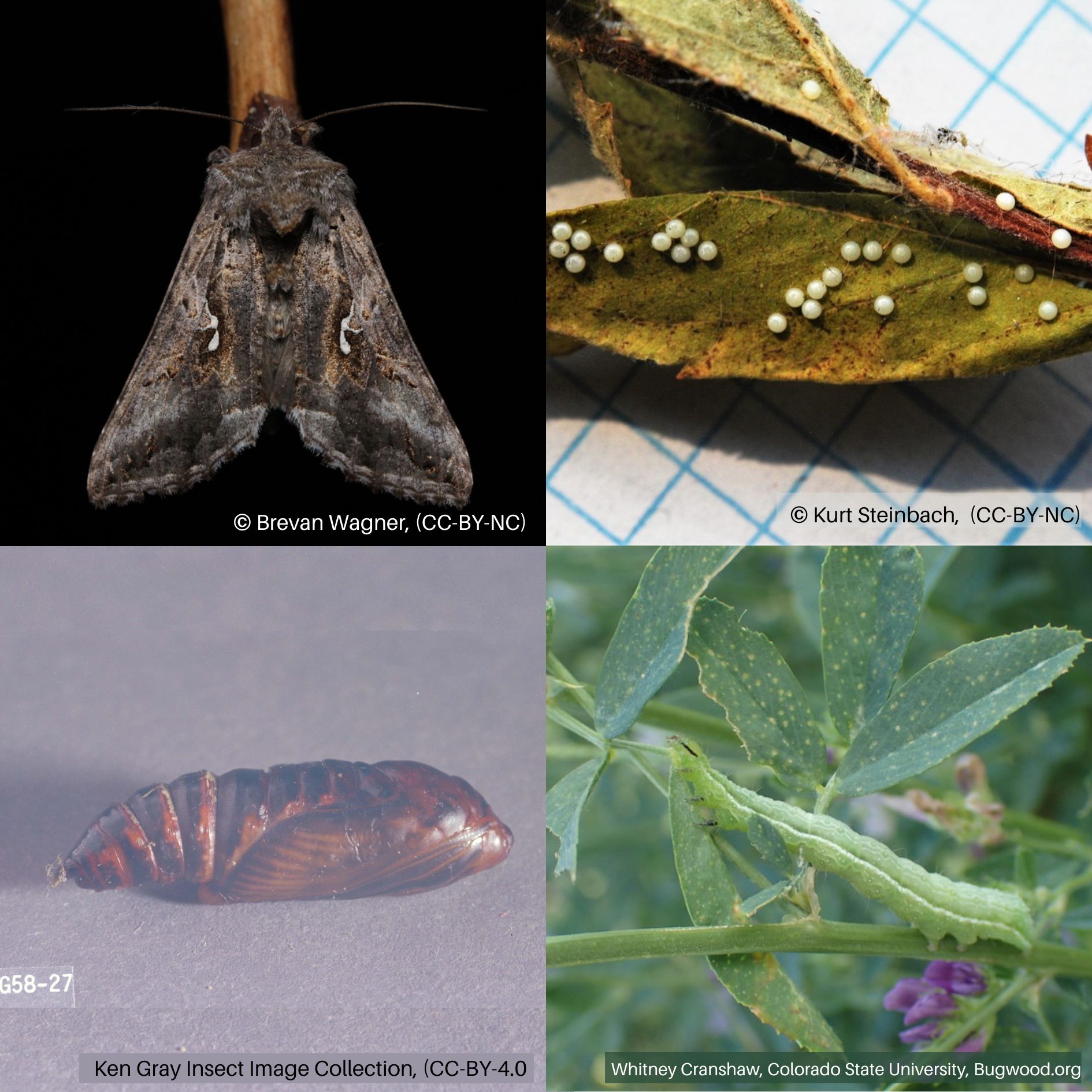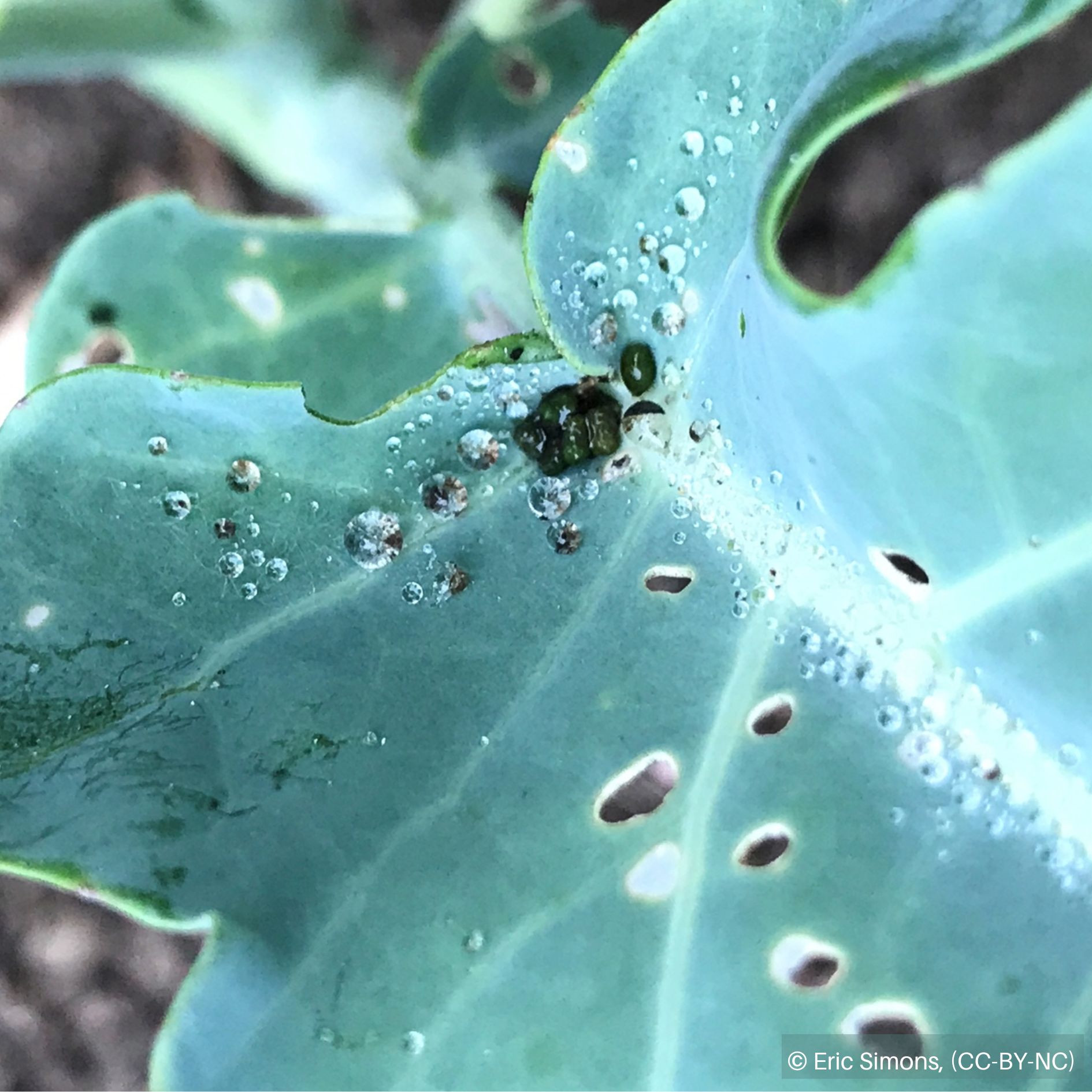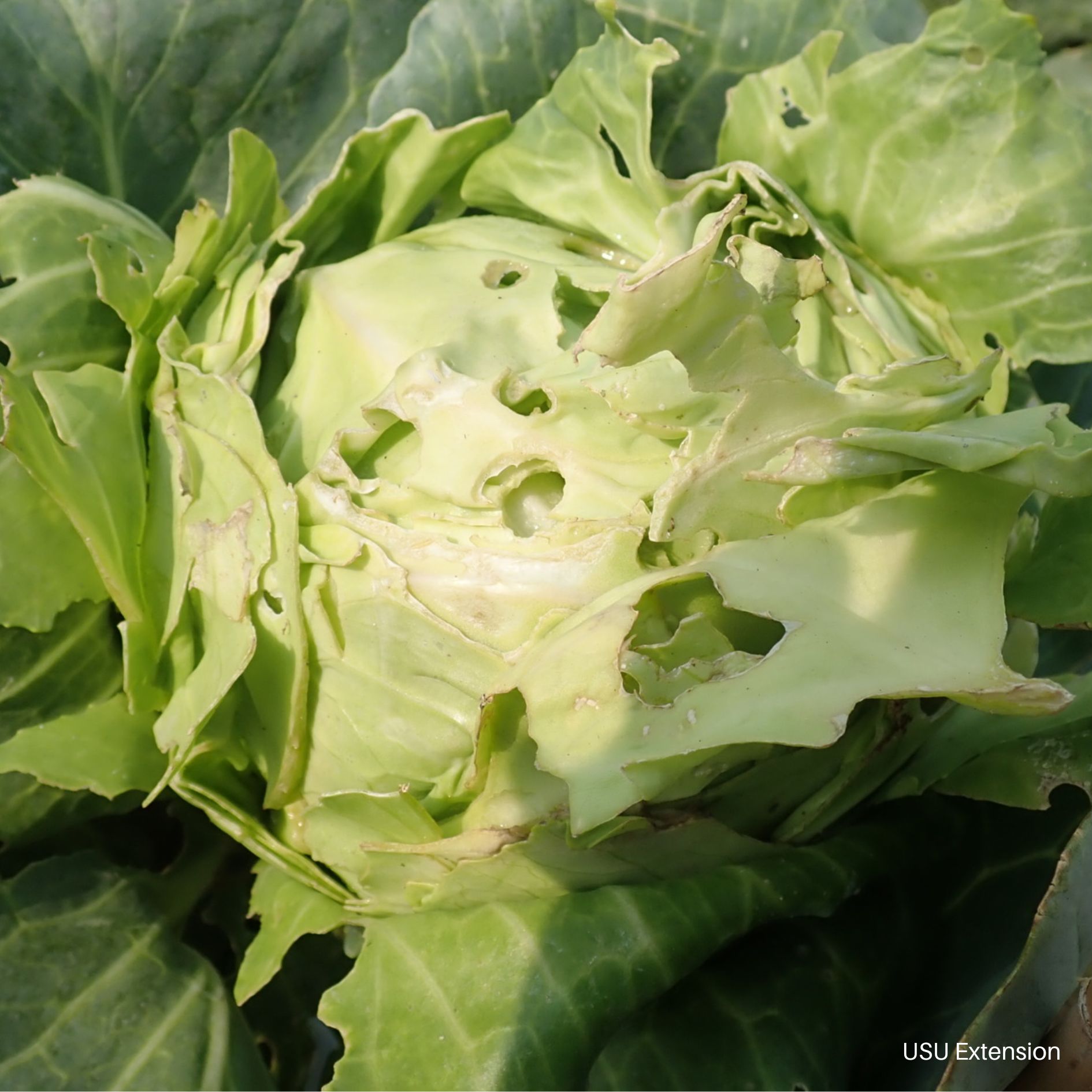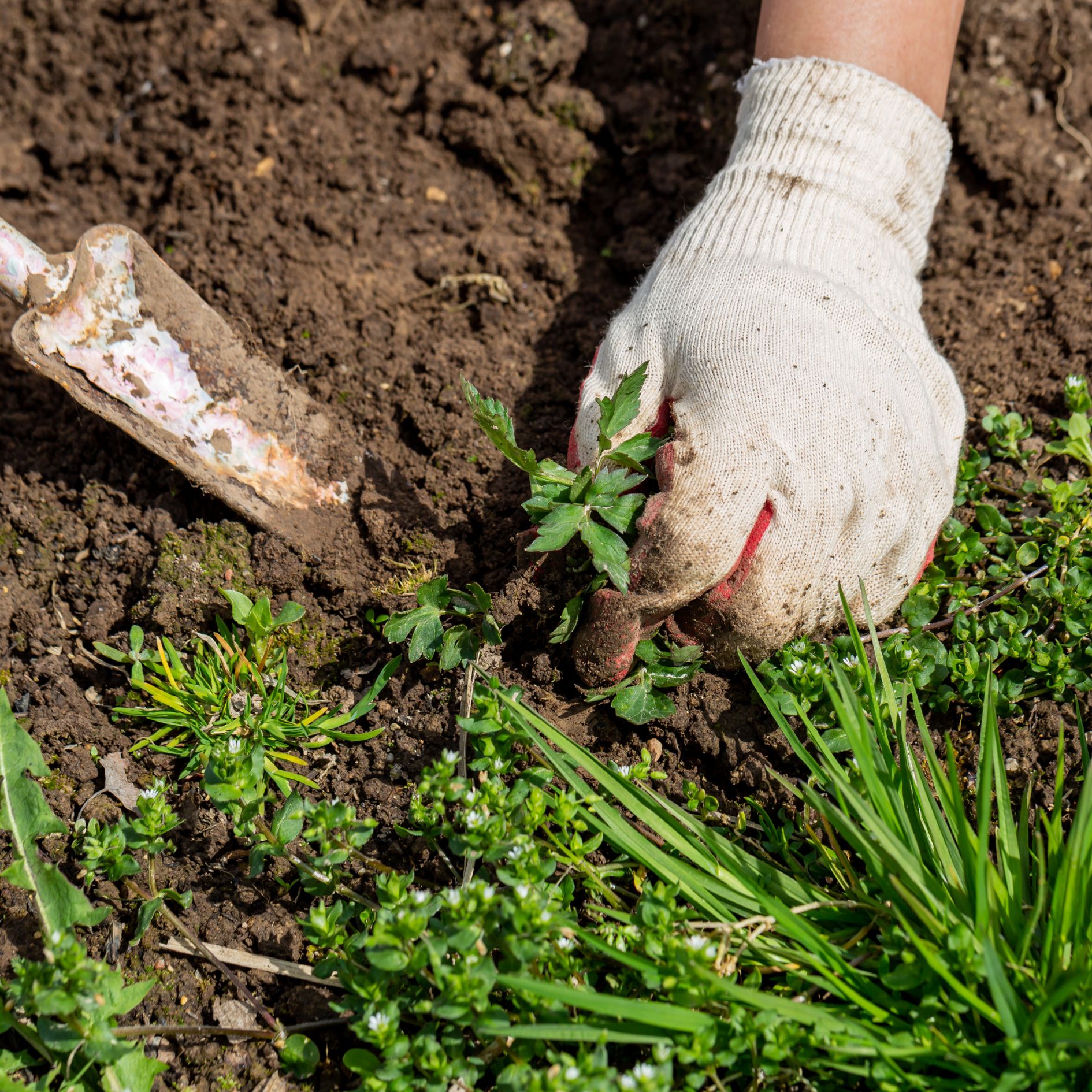Alfalfa Looper
HOSTS
- Alfalfa
- Leafy Greens
- Legumes
DESCRIPTION
Adults have gray-silver forewings with ivory colored markings. Their wingspan is about 1 1/3 inches (35 mm). Alfalfa looper adult moths are notably brighter than cabbage looper moths. Eggs are pale yellow with thin vertical ridges. Larva are green with white line down the sides of their body and reach just over 1 inches (30 mm).
BIOLOGY
Egg | Larva | Pupa | Adult
Alfalfa loopers overwinter as pupa in the soil or plant residue on the ground. Adult moths emerge in the late spring and will lay eggs on weedy hosts. Once hatching, larvae can chew holes in leaves. Sometimes they can cause serious defoliation. As caterpillars mature, their feeding intensifies, and they often move into the developing heads. Larvae feed for about a month before pupating. There are three to four generations per year.
SYMPTOMS
- Irregularly-shaped holes in foliage.
- Skeletonized leaves.
- Frass (fecal matter) on and within crops.
GENERAL MANAGEMENT
- Hand remove caterpillars.
- Use floating row covers.
- Plant tolerant crop varieties.
- Clean growing site of plant debris after harvest.
- Manage weeds to remove overwintering sites for pupae.
INSECTICIDES
Insecticides containing Bacillus thuringiensis var. kurstaki (Bt) and spinosad are effective in suppressing alfalfa looper larvae.





